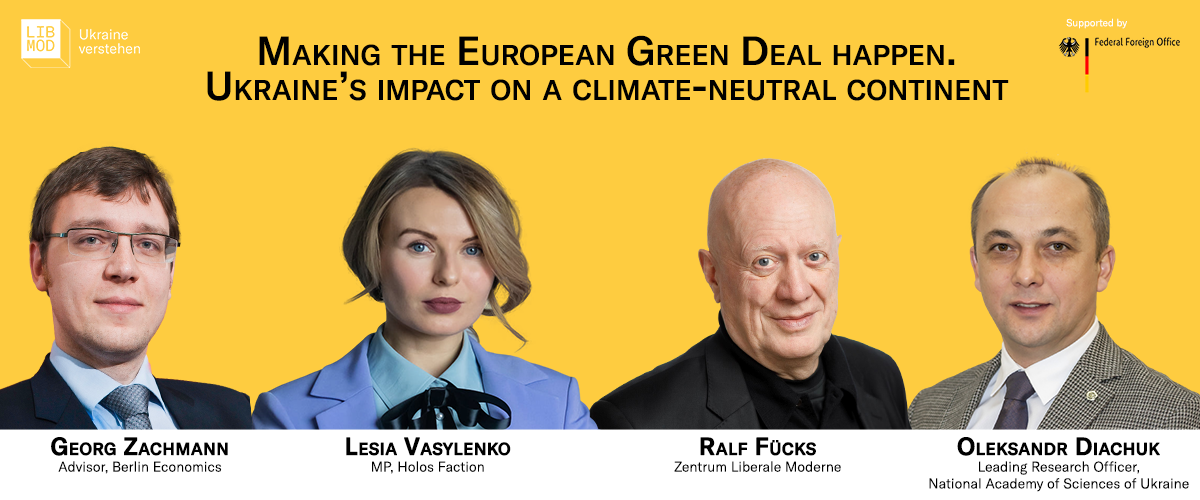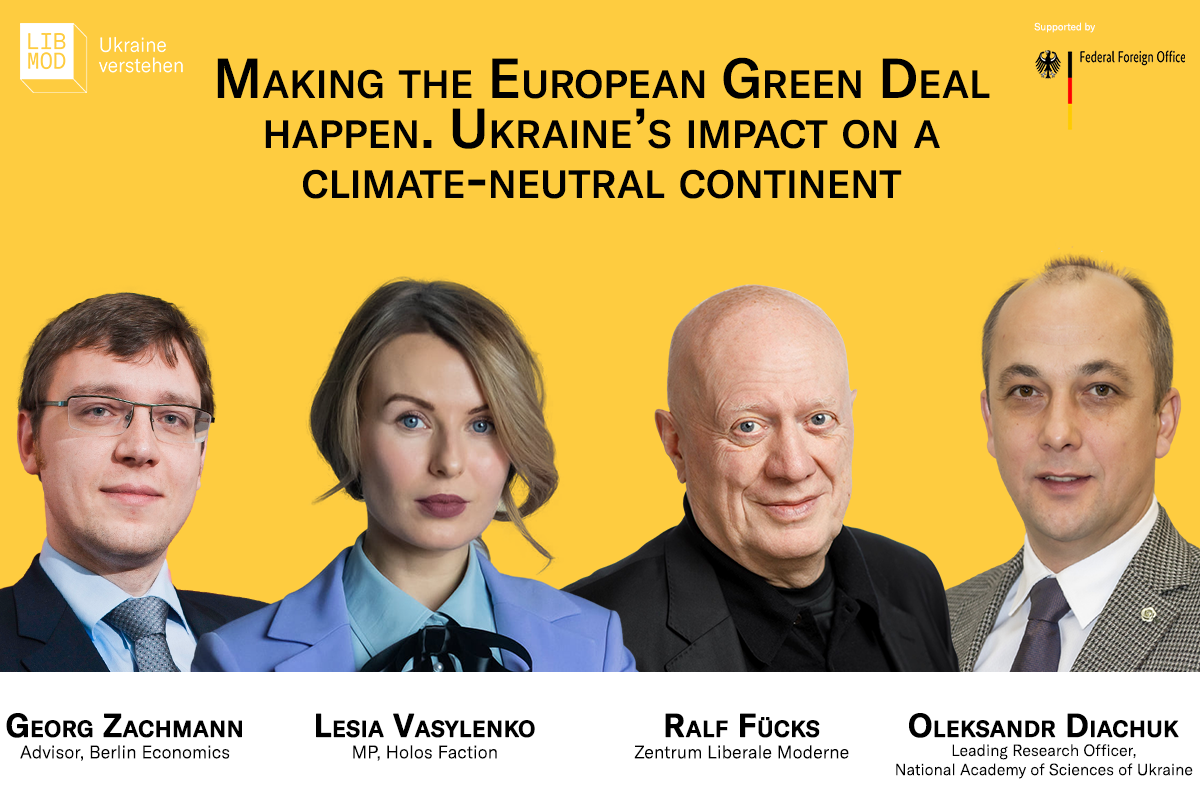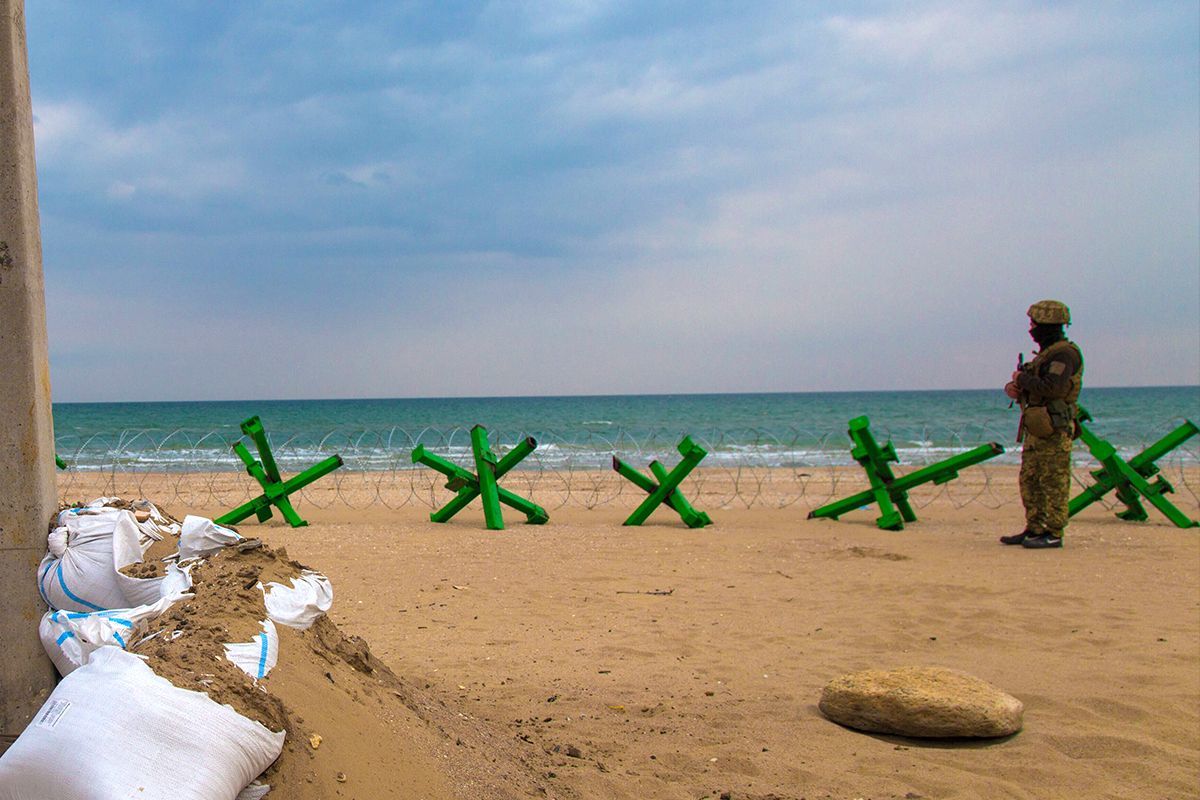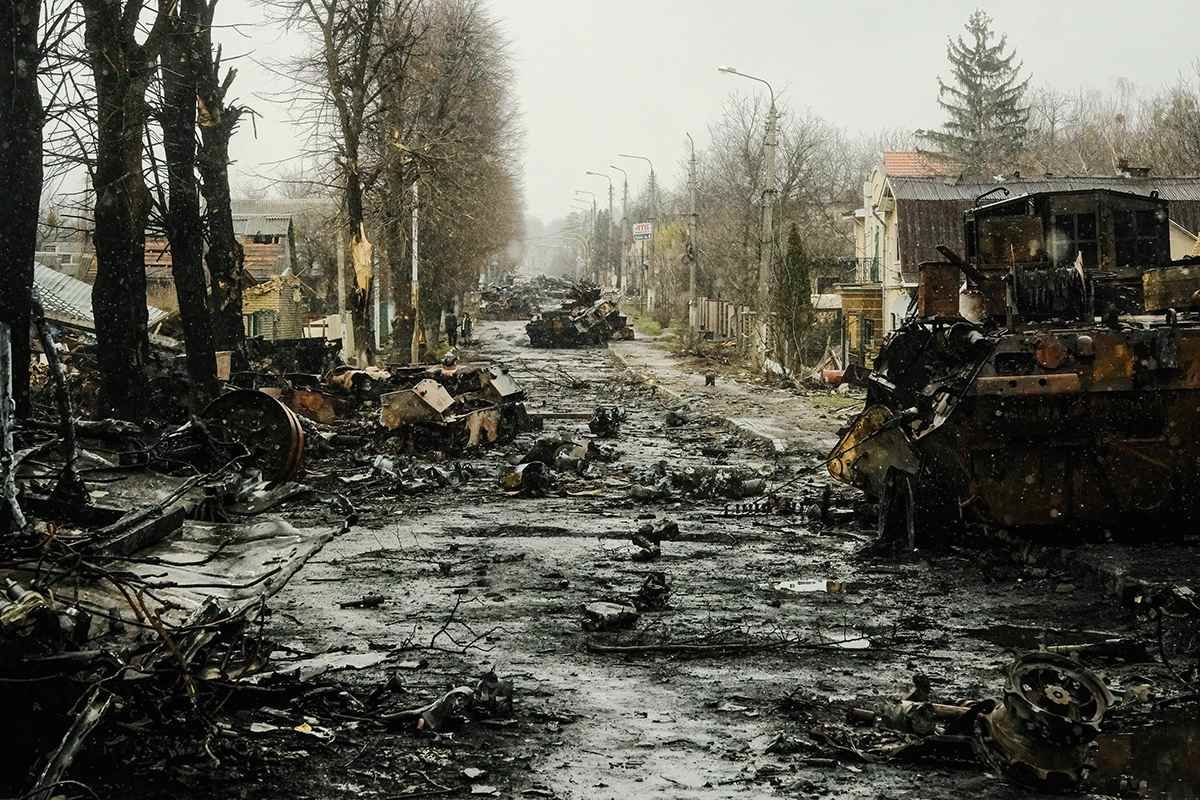Making the European Green Deal happen. Ukraine’s impact on a climate-neutral continent

How can Ukraine develop a comprehensive climate policy and reach a political consensus on Green Deal? This we discussed with Lesia Vasylenko, Georg Zachmann, and Oleksandr Diachuk on May 11th.
Sie sehen gerade einen Platzhalterinhalt von YouTube. Um auf den eigentlichen Inhalt zuzugreifen, klicken Sie auf die Schaltfläche unten. Bitte beachten Sie, dass dabei Daten an Drittanbieter weitergegeben werden.
Mehr InformationenThe Green Deal is a holistic transformative agenda set by the European Union to achieve climate neutrality by 2050. It will have a significant impact not only on the EU’s climate, economic and environmental policy but also on trade and political relations with its partners. To become effective and successful, the European Green Deal (EGD) must become a part of the domestic political and economic agenda of the EU‘s Eastern neighbours, especially Ukraine.
The Ukrainian government has already declared its willingness to join the EGD. However, the war-torn country will face several challenges in catching up with the EU’s climate ambitions. Ukraine must address the low energy efficiency and high carbon intensity of its economy, phase out fossil fuels and invest in the green transition. How can Ukraine develop a comprehensive climate policy and reach a political consensus on Green Deal? What are the green cooperation priorities between the EU and Ukraine? What should be the role and instruments of the European Union in supporting Ukraine on its path towards decarbonization and sustainability?
These questions will be discussed with
▪️ Lesia Vasylenko, MP, Holos Faction
▪️ Georg Zachmann, Advisor, Berlin Economics
▪️ Oleksandr Diachuk, Leading Research Officer, Institute for Economics and Forecasting of the National Academy of Sciences of Ukraine
Chair: Ralf Fücks, Center for Liberal Modernity.
Selected quotes
Ralf Fücks
The European Green Deal will have a significant impact on our relations with other countries. This is an opportunity for enhanced cooperation, but also for potential conflict with our trading partners. To become effective and successful, the European Green Deal should actively engage the Eastern neighborhood countries, especially Ukraine as the biggest Eastern Partnership country.
For Ukraine, it’s even more clear than for Western European countries: the transition towards an eco-friendly economy must go along with rising living standards, economic growth, and social progress. We think that Ukraine should look at the European Green Deal as an opportunity for economic modernization. Vice versa, the EU should look at Ukraine as a partner in greening the European economy and an asset in terms of renewable energy sources.
If you look at Ukraine’s CO2 emissions, you get a puzzling picture: On the one hand, CO2 emissions per capita are only half the emissions in Germany: roughly 4,5 t per person compared to 9 t in Germany. And if you look to the history of CO2 emissions in Ukraine, it seems an impressive success story: From more than 16 tons per capita in 1989 to 4.5 tons today.
Lesia Vasylenko
Ukrainian budget is mostly directed at the support of traditional industries, rather than at environmental issues since big industrial groups highlight an acute need to strengthen the economy in view of the ongoing war and pandemic crises. The budget of the country reflects the policy and the approach to climate change.
Nord Stream 2 poses a great danger not only to Ukraine but also to European energy independence and to various environmental aspects, which the EU has been advocating for – it destroys biodiversity throughout Europe. Promoting environmental issues, we need to be sustainable in words and actions, and we need a plan, which balances economic, international, and environmental interests. An important external aspect of the Green Deal is promoting the notion in Ukraine that the Green Deal is a security matter.
Ukraine can become a success story, where renewables and nuclear sector balance each another. The nuclear potential of Ukraine is already there, however, the existing facilities need to be modernized in accordance with internal laws, international obligations and in line with environmental policy.
For Ukraine, as a traditionally agrarian country, it is a key to remain this way, however, agricultural practices should be sustainable. The land reform (privatization of agricultural lands) in Ukraine must be environmentalized.
Oleksandr Diachuk
Ukraine’s agricultural industry has very high greenhouse emissions and is a huge sector to be modernized.
The capital expenditures for nuclear energy in Ukraine are rising, while the costs of renewables are declining. So, in the long-term perspective, renewable energy should play a bigger role.
The demand for high-quality agricultural products will be increasing. Ukraine should seize the opportunity and export less raw, but more processed agricultural products.
Georg Zachmann
EU partners must be ambitious in helping Ukraine to set regulatory anchors to increase the predictability of its environmental and economic policies.
![]()
Verwandte Themen
Newsletter bestellen
Tragen Sie sich in unseren Newsletter ein und bleiben Sie auf dem Laufenden.






